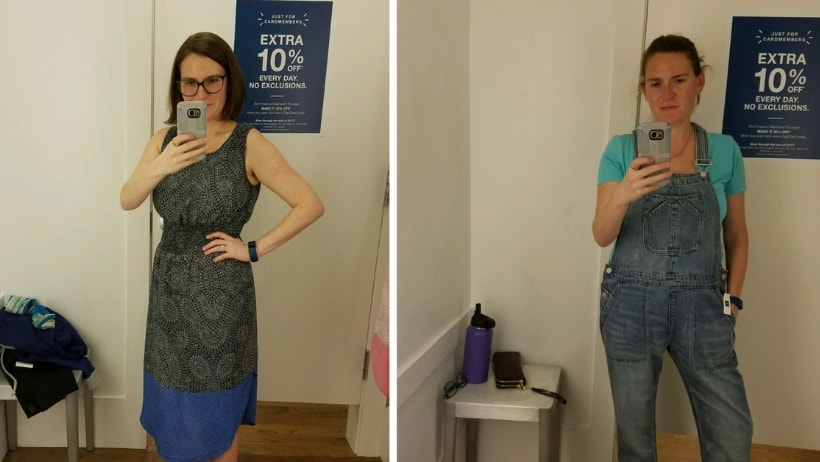As the older sister in my family, I was lucky to get the brand new kid clothes; the hand-me-downs went to my younger sister and younger cousin. This was the case pretty much up until I was in middle school. In fact, when my sister was a toddler, she actually thought that “going shopping” meant going into our basement to get the next size up box of clothes. We had a great system going until both my younger cousin and sister were suddenly taller than me. By high school I was the one who started to receive hand-me-ups, and to be honest, I was fine with how the tables had turned. This was a time when I relied on my babysitting money for things like car insurance and my own gas, so the free, gently-worn clothes were welcome in my closet.

At a certain point, a college student can no longer wear clothing meant for a middle schooler, even if it fits. It’s a shame, in a way, because to this day I still have some favorite outfits that I can’t bring myself to part with even though they are neither fashionably relevant nor appropriate for a rabbi to wear.
This week we read Parshat Eikev, in which we learn of the blessing and reward for keeping the laws of the Torah and the consequences for those who don’t. The Torah then recaps the stories and lessons learned from the Golden Calf, the breaking of the first set of tablets, and Moshe’s prayer for the people. Finally we receive the second section of the Shema as well as a clear warning to guard the Torah and its commandments.
In chapter 8, verse 4, God alludes to the fact that the clothes the Israelites took from Egypt did not wear out. After 40 years of wandering in the desert, these magic garments were still fashionable and practical, not to mention miraculously intact. The Midrashic commentary Deuteronomy Rabbah interprets this to mean:
The faith you practiced every day never wore out, nor did you outgrow it, while the faith you took out only on special occasions (like the Golden Calf) shrank and became too small for you. Similarly, your children’s religious outlook grew with them as they grew and matured.
Some aspects of our faith – of Judaism itself – change as we age just like our clothing sizes and clothing tastes. Our belief in God when we’re children doesn’t necessarily resemble our belief in God as adults. Our life experiences mold and shape us as we mature, so just as our size and style change as we age, so too our understanding of and relationship with our religion can and should change. However, when we outgrow clothes, we don’t give up and walk around naked. Therefore, we read Parshat Eikev as a reminder that if something in your Judaism doesn’t fit quite right, it’s a sign you should perhaps look through the “wardrobe” and decide what to donate and what to keep. In other words, it’s time to study, discuss, engage, and reevaluate your perspective. In Judaism and in attire, fresh eyes and an open outlook are always in style.



